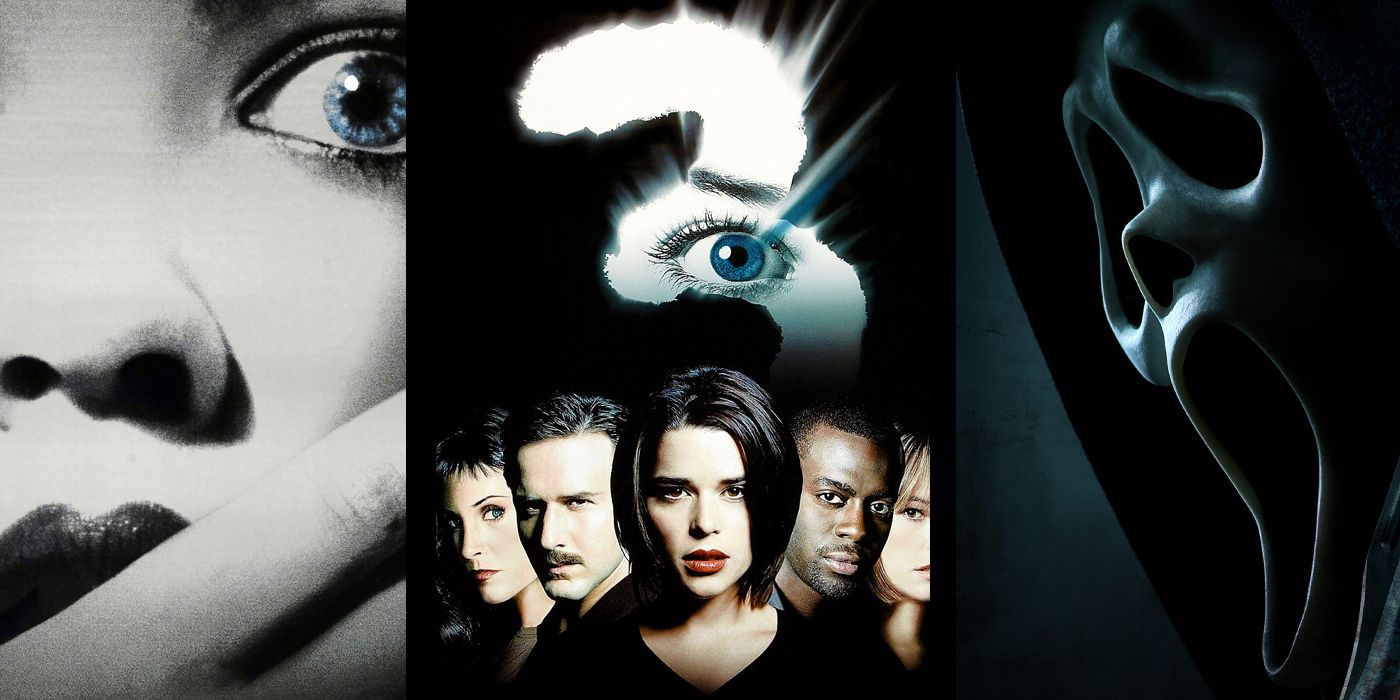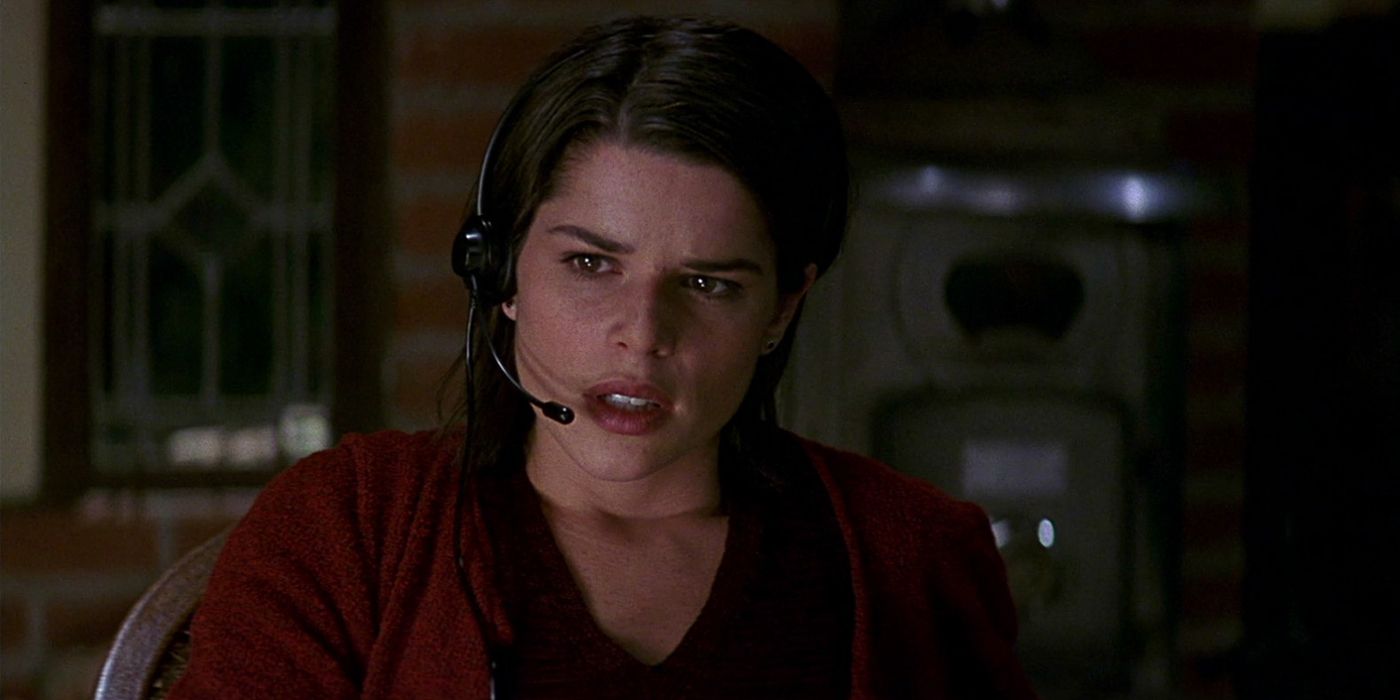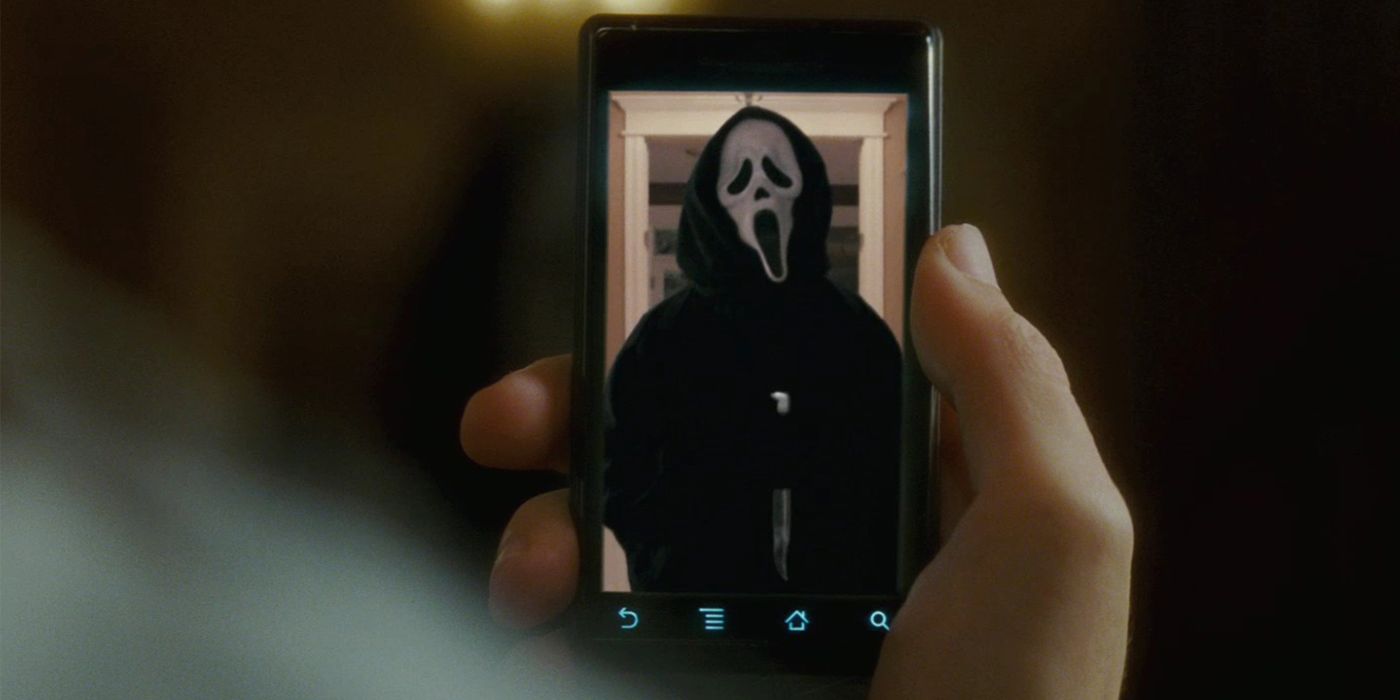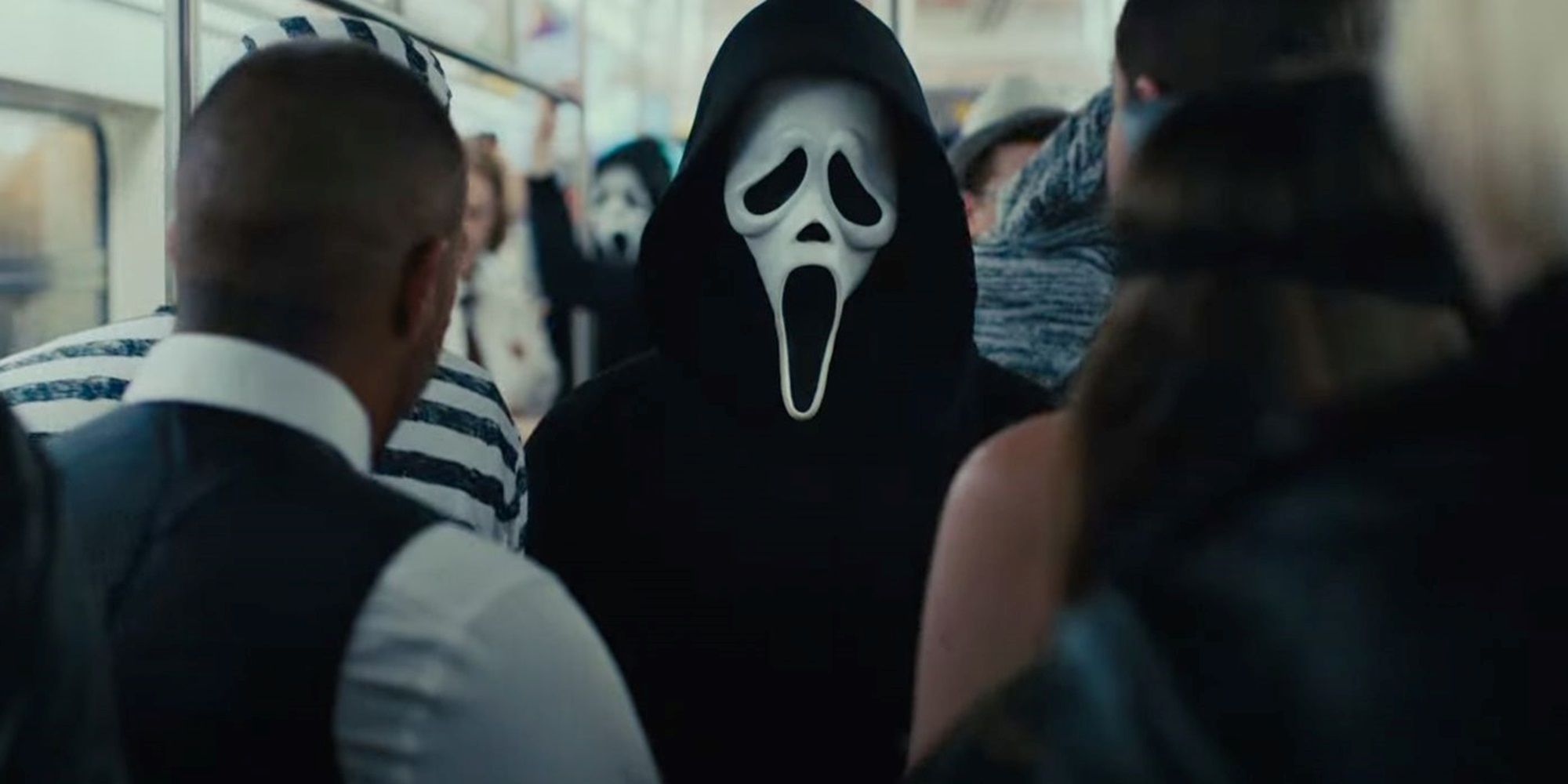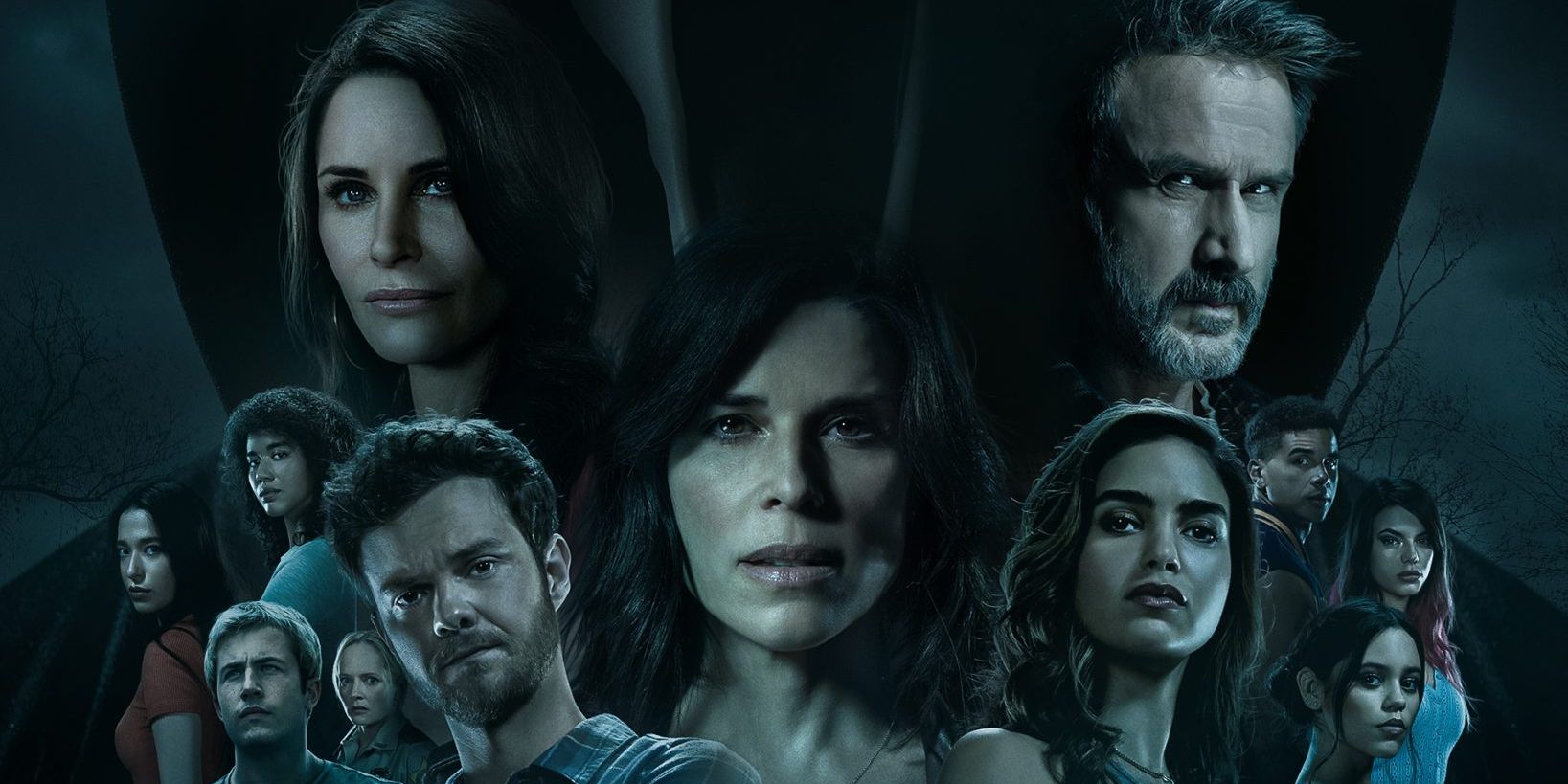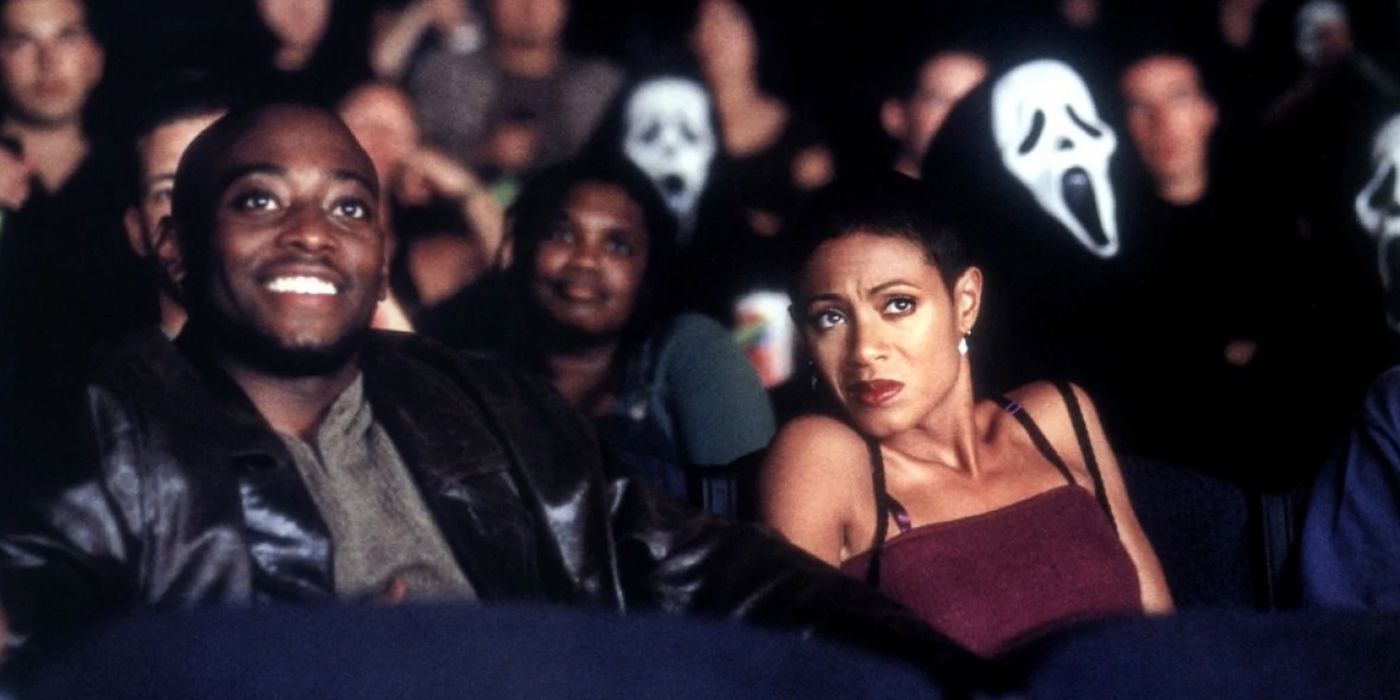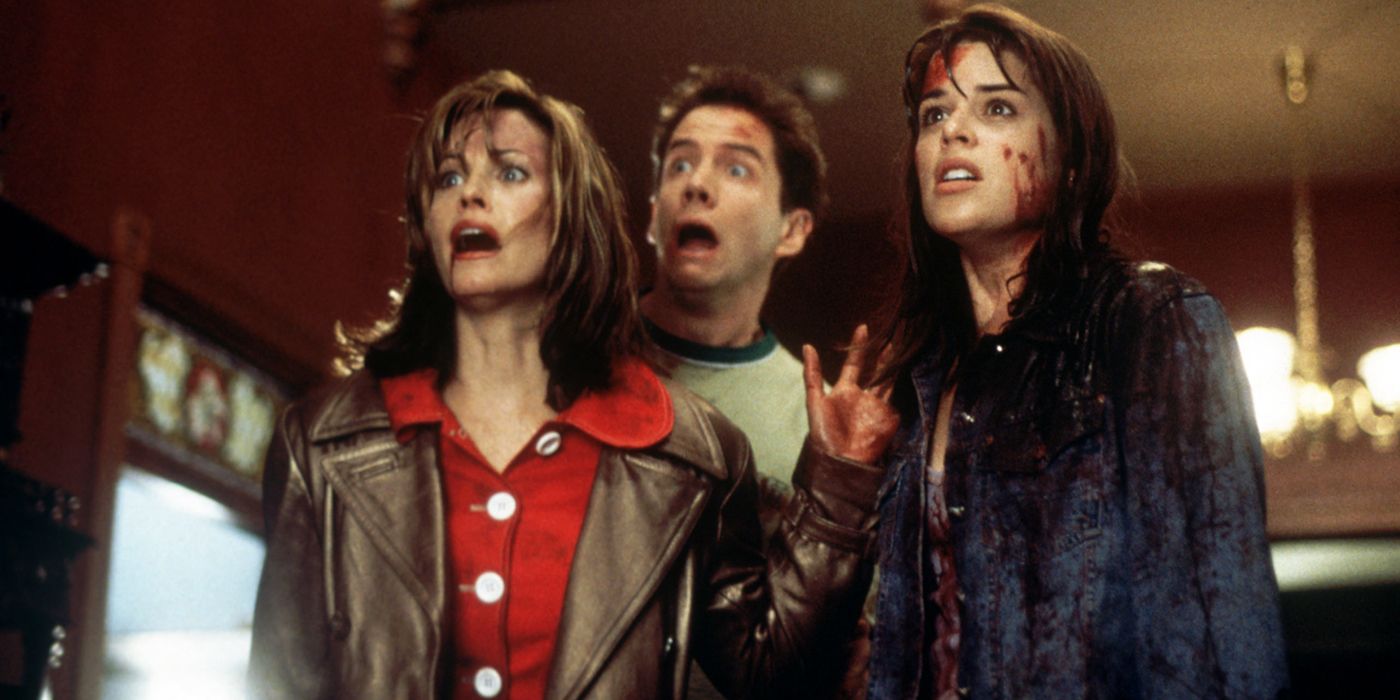The best Scream movies prove why it is one of the most popular and influential horror franchises of all time. Whereas most horror franchises are accused of repeating the same formula with little to no innovation with each sequel, Wes Craven and Kevin Williamson made sure Scream's self-referential style was as vital and prominent as its unforgiving body count. That legacy has now continued thanks to the 2022 arrival of Scream (aka Scream 5), directed by Ready or Not duo Matt Bettinelli-Olpin and Tyler Gillett as well as its follow-up Scream VI.
The Scream franchise walks a fine line between horror and comedy, placing A-list talent in B-movie territory. And, even though the pop culture references may have a considerably brief shelf life, their datedness is part of the appeal. They fit with the genre's oftentimes transitory aesthetic. And, unlike the horror films this it equally mocks and tips its hat to, the Scream franchise is as self-aware as horror franchises go. The sixth entry keeps Ghostface alive, as well as takes the series into new territory including being the first Scream movie without Sidney Prescott. That factors into the new sequel's placement in the ranking of the best Scream movies ranked.
Scream 3 (2000)
- Stream on Paramount Plus
On paper, Scream 3 is a strong bookend to the original trilogy, standing as the last Scream movie for over a decade. Considering the whole series is a meta-commentary on horror, pop culture, and filmmaking, the film has a "finish where we started" setup, without physically finishing where the franchise started. It appropriately doubles down on the fact that Hollywood's self-awareness has always been Scream's thematic crux, physically moving the action to Hollywood itself, expanding on and recreating the events of the first film. However, instead of embracing the clever necessity of its location, it instead becomes a kind of narrative ouroboros, circling back to the past, only to eat its own tail in the process.
Where Scream 3 succeeds in the big picture (discovering that Sidney's journey has been orchestrated all along - by a Hollywood director, no less), it fails in the details (said discovery ruins the simplicity of the original). The highs in Scream 3 are too far-reaching and the lows are too unforgivable to excuse. It's ultimately an exercise in not pushing the envelope like its two predecessors, but tearing it open; removing itself from the grounded reality in which the franchise was established and drowning in excess.
Scream 3 had potential, but shaky execution. From the pointless and unrealistic evolution of the franchise's iconic voice changer to the watered-down gore to cameos from Jay and Silent Bob, Scream 3 is an unfortunate outlier in the Scream franchise that could've benefited from a few more rewrites - or, more importantly, bringing back original writer Kevin Williamson.
Scream 4 (2011)
- Stream on Paramount Plus
While Scream 4 might seem like an easy film to criticize by design, it's hardly the wasted sequel that too many horror franchises tend to produce. 10 years have passed since its predecessor, and though 2011 may not have been a peak moment for the Scream fandom, Scream 4 goes beyond holding its own, and is easily a worthy companion to the 1996 original.
Neve Campbell, Courteney Cox, and David Arquette return as the franchise's main trio, Craven and Williamson (as well as Scream 3's Ehren Kruger, in part) take on directing and screenwriting duties, respectively, and Woodsboro is yet again the center of attention (though, in this film, Michigan replaces California in a noticeable, but not distracting, geographical change). However, even apart from the film's strong foundation, Scream 4 has the benefit of slick storytelling that rivals at least two of the three films that preceded it.
Ten years after Scream 3, Sidney returns to Woodsboro on the last stop of her autobiographical self-help book tour. And, in doing so, she unleashes the threat of a new generation of murders. As Ghostface slices through unsuspecting locals, Scream 4 succeeds in three key ways: cleverly acknowledging the myriad of horror tropes that have tested the waters over the past decade, bringing Sidney's story full-circle, and commenting on the times, contrasting the modern Generation Z with the original trilogy's Generation Y. In fact, the Ghostface killer(s) reveal in the final act is an on-the-nose - and also tongue-in-cheek - representation of the times, which is itself a thematic centerpiece of the franchise, done ever so delicately (and disturbingly) here.
Scream VI (2023)
- See in theaters
The new era of the Scream franchise continues with Scream 6 which sees some big changes. Not only is the action moved to New York City, but this marks the first Scream without Sidney Prescott appearing. Luckily, the new cast including Jenna Ortega and Melissa Barrera continues to prove the series is in good hands. The movie sees the sisters and their friends attempting to move on from the events of the last movie by starting a new life in New York City only for a new Ghostface to emerge.
The movie tries some new things with the franchise such as the clever opening sequences that plays on the established formula. However, it ultimately doesn't feel quite as fresh as the previous entry. The meta-commentary on this being a franchise doesn't feel as sharp while the Scream 6 Ghostface killer reveal was seen as somewhat disappointing. However, the new setting and returning cast, along with some legacy characters, make this a fun ride as well as the bloodiest of the Scream movies.
Scream (2022)
- Stream on Paramount Plus
While Scream 4 has since come to be seen by many as a worthy entry into the franchise, it was far from a big hit at the box office, and for a long time, seemed like it would be the last hurrah for Ghostface. That changed with the 2022 release of Scream, a "requel" as the film actually calls itself in-universe, referring to the combination of reboot and sequel. Many franchise followers wondered if a Scream movie could be successful without Wes Craven at the helm, but thankfully, new directors Matt Bettinelli-Olpin and Tyler Gillett were up to the task, leading to a fifth film that comes very close to being the best movie in the series since the original Scream.
Scream 2022 smartly ramps back up the gallows humor and horror genre references in a way not seen since Craven's 1996 original, leading to another slasher flick with razor-sharp wit. Legacy characters Sidney, Dewey, and Gale are all used well in their surprisingly limited screen time, and when one of them meets their demise, it really does hurt to see them go. Meanwhile, most of the new cast acquits themselves well, especially Jack Quaid as Richie, boyfriend of new final girl Sam, and Jasmin Savoy-Brown as Randy's horror-obsessed niece Mindy. While the killer reveal and ending aren't hard to see coming, and the central mystery isn't as well-plotted as it was in the original, those who look back on Craven's classic fondly will find lots to love here.
Scream 2 (1997)
- Stream on Paramount Plus
Though sequels historically tend to have a weak track record, Scream 2 goes out of its way to prove otherwise. In fact, it even includes a scene in which film students highlight the fact that "many sequels have surpassed their original." And, even though Scream 2 doesn't quite stand shoulder-to-shoulder with its predecessor, it comes dangerously close. Instead of forcing its way into existence, Scream 2 feels necessary; a true companion piece to the original.
Like the first film, it comments on and sometimes satirizes horror movie tropes - specifically horror movie sequels - while maintaining its meta-commentary on the way life imitates art, and vice versa. Gale Weathers' novel, The Woodsboro Murders, has been adapted into a film - launching the in-universe Stab franchise - mirroring the events of Scream and inciting a new Ghostface-led killing spree. And, while the sequel stereotypes and rules are a fun component to Scream 2, its success stems from the sum of its parts.
Williamson is extending his reach with classic horror movie references (Sarah Michelle Gellar's cat-and-mouse sequence scored by Nosferatu is particularly satisfying), Craven is given room to put his psychology degree to use with deep dives into Sidney's damaged psyche, and Dewey and Gale's romance is as realized as it'll ever be. In short, though, Scream 2 is just a lot of fun. Not taking itself quite as seriously as its predecessor, yet without doing a disservice to the genre, the franchise finds its footing in Scream 2, and its clever evolutions of plot and character make the first Scream that much more satisfying with repeated viewings - notwithstanding one fan-favorite failing to make it out alive.
Scream (1996)
- Stream on Paramount Plus
Scream isn't the first meta-horror film, but it did set a precedent. With Scream, though, that awareness isn't just a gimmick, but the focus. Its characters are knee-deep in pop culture and are just as likely to watch a horror movie on a weeknight as the audience watching - even being aware of the horror genre's "rules" - in other words, where most other horror movie characters can often be the human embodiments of cheap stereotypes, Scream's characters are real and relatable allowing Scream to become far from the average slasher.
On the surface, Scream is a simple whodunit that borrows from (and even references) films like The Town that Dreaded Sundown, Prom Night, and Psycho. But it also stands on its own. The film's opening scene proves that everyone is expendable, and the final twist juggles two major components: it proves that the aimless slice-and-dice formula is just a red herring for a fully-realized emotional motive, and it also opens the door to the complicated topic of how media might influence the general public.
Do movies really have the power to rattle the skeletons hidden in closets? Is the youth of America too impressionable to handle on-screen violence? Or is violence in cinemas just an easy scapegoat to justify real-life cruelty and sidestep responsibility, as it seems to be with Billy Loomis and Stu Macher. These are the questions Scream posits, and these questions are what elevate it from being some throwaway horror film. On the surface, it might seemingly present one more costumed killer to add to the catalog of other costumed killers, but it's the grey area - the general ambiguity surrounding these questions - that makes Scream the classic that it's deservedly become.

